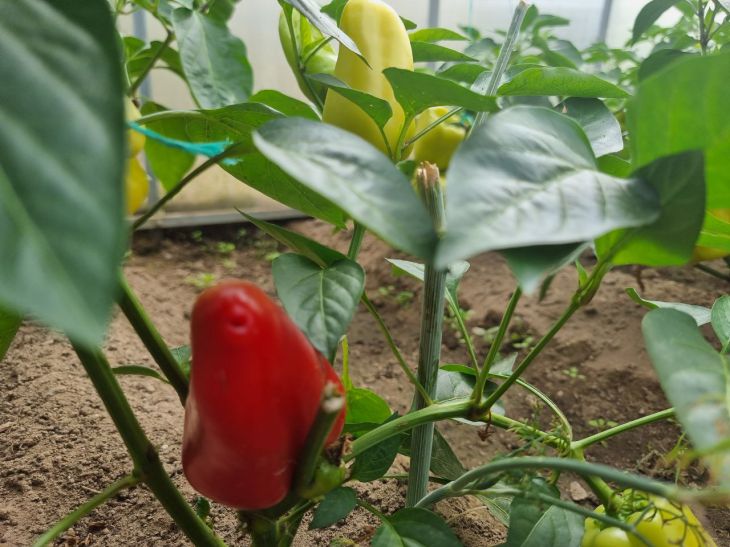Are you sure your peppers are growing as they should? Chances are, you're not quite right.
Because even experienced gardeners repeat the same mistakes for years, turning juicy, crunchy fruits into ugly mummies.
Now you will learn how five non-obvious mistakes steal your harvest, and why your neighbors laugh when they look at your garden beds.

Pepper is a capricious crop. By planting a southern variety in Siberia, you condemn it to suffering. Such plants require heat 24/7, and in a moderate climate their growth is inhibited already at +15°C.
The solution is simple: choose early-ripening hybrids marked “for open ground”.
For example, "Eroshka" or "Funtik" ripen in 95 days, without requiring greenhouses. But "California Miracle" in cold regions will turn into a dwarf bush with three fruits.
Watering peppers every day is like feeding a baby fried potatoes. Their roots suffocate without oxygen, and white spots appear on the leaves - a sign of overwatering.
But drought is also destructive: the fruits crack and become bitter. The golden mean is watering once every 5 days with warm, settled water. Do not pour under the root, but into the grooves around the plant to avoid fungus.
Many people think that only tomatoes need side shoots. But in vain! In peppers, especially tall varieties, side shoots take up to 40% of their energy.
Remove all branches below the first fork and shoots without ovaries. But do not overdo it: if you cut more than 2-3 stems at a time, the plant will become stressed. The best time for the procedure is the morning, when the stems are juicy and break off easily.
Pepper is a real glutton. It needs potassium, phosphorus and calcium. But 80% of gardeners pour only manure into the hole, which leads to fattening of the foliage to the detriment of the fruit.
Ash (a glass per bush) and eggshells ground into flour will help to correct the situation. Calcium from the shell prevents blossom-end rot, and ash protects against slugs.
Fennel and beets should not be planted near peppers. Fennel secretes substances that inhibit the growth of nightshades, and beets draw all the magnesium from the soil.
Ideal neighbors are basil (repels aphids) and carrots (loosens the soil). But the main thing is never plant peppers after potatoes or eggplants!
